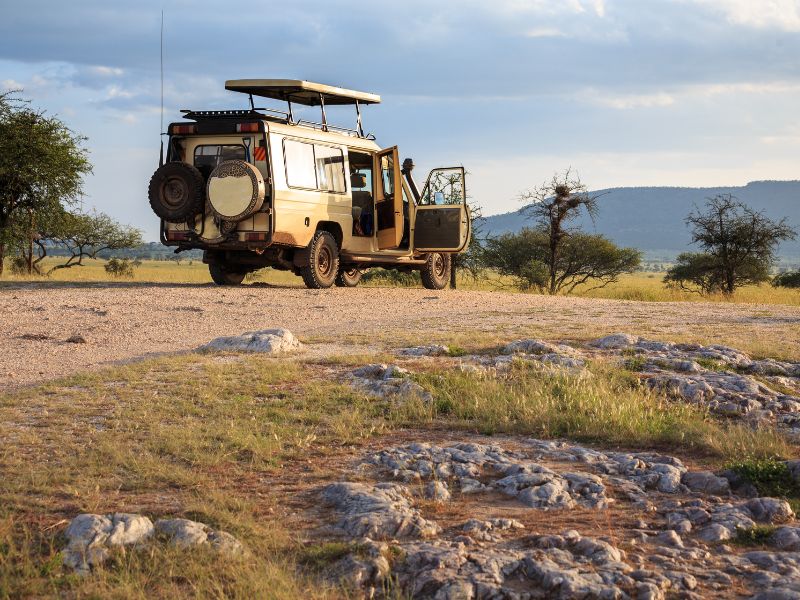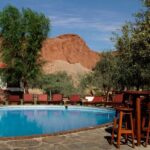When you think of the African wilderness, it’s hard not to picture the majestic lions, elusive leopards, and fast cheetahs roaming freely. These apex predators play a key role in maintaining the balance of their ecosystems. As the world’s fascination with African wildlife continues to grow, one of the best ways to observe these magnificent creatures is by booking a safari in predator-rich reserves.
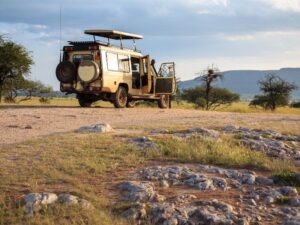
If you’ve ever wondered how to embark on a safari to see these powerful big cats, you’re not alone. Many people dream of witnessing lions lounging in the savannah, leopards stealthily hunting in the brush, and cheetahs sprinting across the open plains. But planning a safari that takes you into the heart of predator-rich reserves can seem daunting. In this blog, we’ll guide you through the process, help you understand the importance of predator conservation, and highlight some of the best destinations where these animals thrive.
The Appeal of Safari in Predators’ Natural Habitats
Predator-rich reserves are specific areas of the wilderness where big cats—especially lions, leopards, and cheetahs—are abundant. These reserves are often protected spaces, ensuring that the predators live in their natural habitats with minimal human interference. The presence of predators in a reserve isn’t just for tourists to marvel at; it’s an essential part of the ecosystem.
Why Are Apex Predators Vital for the Ecosystem?
Lions, leopards, and cheetahs are at the top of the food chain in their habitats. Their role is crucial for regulating the population of herbivores and smaller carnivores. Without predators, certain species could become overpopulated, leading to imbalances that harm the environment. In other words, these protected areas help maintain the delicate harmony of nature.
Choosing a safari that takes you to these reserves not only supports conservation efforts but also offers a once-in-a-lifetime opportunity to witness these stunning animals in their natural environment. Plus, it provides a deeper understanding of their importance in the wild.
Seeing Lions Up Close: An Iconic Safari Experience
Lions are the ultimate symbols of the African wilderness. As “kings of the jungle,” these powerful creatures are often the main attraction on safaris. Lions live in social groups called prides, and seeing them interact with one another can be a truly mesmerizing experience. From the playful cubs to the dominant males, there’s always something fascinating to witness.
The Social Structure and Behavior of Lions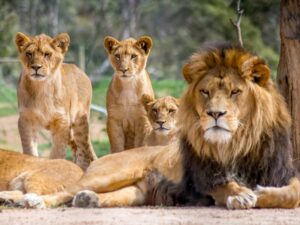
In predator-rich areas, lions roam freely, and the chances of spotting them increase significantly. These areas often have a high concentration of prey, which makes the lions more active in the search for food. As a result, you’re more likely to see them hunting, resting in the shade, or simply enjoying the warmth of the African sun.
It’s important to remember that lion populations are under threat due to habitat loss, poaching, and human-wildlife conflict. By visiting reserves that focus on predator conservation, you’re contributing to the survival of these majestic creatures. Many of these reserves run important programs to protect lions and monitor their populations, ensuring that future generations will continue to experience the magic of seeing a lion up close.
Leopards: Stealth and Elegance in the Wild
Leopards are often considered the most elusive of the big cats. Their spotted coats blend perfectly with the environment, allowing them to move undetected through dense vegetation. They are solitary animals, unlike lions, and are known for their incredible hunting skills.
Why Are Leopards So Hard to Spot?
Leopards are highly adaptable, found in a variety of habitats, from savannas to dense forests. In predator-rich reserves, leopards thrive because they have access to abundant prey and dense cover, which they use to stalk their prey undetected. Spotting a leopard on safari is a rare and thrilling experience. Unlike lions, which are often seen in large groups, leopards are solitary and tend to avoid human interaction. This makes them one of the most challenging yet rewarding animals to see in the wild.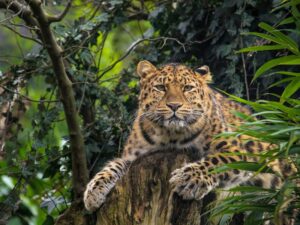
When you book a safari in a predator-rich reserve, you may need to keep your eyes peeled and your camera ready. Leopards are experts at remaining hidden, so it might take some patience and a little luck. However, with expert guides and trackers, your chances of spotting a leopard increase dramatically. These reserves are home to some of the world’s most elusive and awe-inspiring wildlife.
The Cheetah’s Incredible Speed and Hunting Skill
Among the big cats, the cheetah is the fastest. Capable of reaching speeds over 60 miles per hour in short bursts, they are built for high-speed chases. Cheetahs are not as large as lions or leopards, but their grace and agility set them apart. These predators rely on speed rather than strength to catch their prey, often hunting in open plains where they can make the most of their incredible sprinting abilities.
The Cheetah’s Role in Predator-Rich Reserves
In predator-rich reserves, cheetahs are an absolute must-see. These reserves often provide vast, open landscapes, which is ideal for cheetahs to hunt and roam. Watching a cheetah chase down its prey is one of the most exhilarating experiences on safari. Unlike lions, cheetahs do not live in prides. They are more solitary, with males often roaming alone and females with their cubs.
Cheetah populations are also under threat due to human-wildlife conflict and loss of habitat. By supporting safari tours that visit predator-rich reserves, you’re helping fund conservation programs aimed at protecting cheetahs and their environment. These reserves provide crucial safe spaces for cheetahs to thrive and continue their vital role in the ecosystem.
Planning Your Safari to Predator-Rich Reserves
Planning a safari to predator-rich reserves is easier than it may seem. The key is to choose a reputable safari operator who understands the importance of responsible wildlife tourism and offers access to the best reserves. Here’s a simple guide to get started:
Selecting the Best Destination for Big Cat Sightings
There are many reserves across Africa that are home to large populations of lions, leopards, and cheetahs. Some of the most famous areas are located in countries like South Africa, Kenya, Tanzania, and Botswana. Research different destinations to find one that suits your interests and budget.
Choosing a Tour Operator for Your Safari Adventure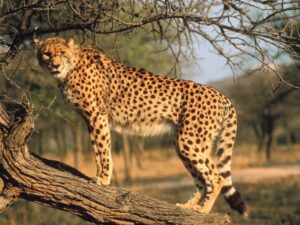
Once you’ve selected a destination, find a reliable tour operator. Look for companies that specialize in wildlife safaris and have experience in organizing tours to predator-rich reserves. A good tour operator will ensure that you visit areas with high concentrations of big cats and can offer expert guides to enhance your experience.
How to Pick the Right Safari Type for Your Needs
There are various types of safaris to choose from. Some are more luxurious, with private vehicles and accommodations, while others are more rustic and focused on the experience of being in the wild. Choose the one that best fits your preferences.
Best Time of Year to Visit Predator-Rich Reserves
The best time for a safari depends on the region and the wildlife you want to see. In general, the dry season (usually from June to October) is considered the best time to spot predators, as animals tend to gather around water sources. However, different seasons offer different experiences, so be sure to research the best time for your chosen destination.
Booking Your Safari Early for the Best Experience
Safari tours can fill up quickly, especially during peak seasons. To secure your spot, it’s recommended to book your safari well in advance. This also gives you time to make any necessary arrangements, such as vaccinations or travel documents.
Packing for Your Safari in Predator-Rich Reserves
Once you’ve booked your safari, pack accordingly. Light, breathable clothing, binoculars, and a camera are essential. Be sure to bring sunscreen, insect repellent, and any necessary medications. And most importantly, don’t forget your sense of adventure!
Supporting Conservation Efforts in Predator-Rich Reserves
As you plan your safari to predator-rich reserves, keep in mind that these tours often support vital conservation work. Many of these reserves are dedicated to protecting not only the predators but also the entire ecosystem. By visiting these areas, you’re helping to fund anti-poaching efforts, habitat restoration projects, and the education of local communities about the importance of wildlife conservation.
The Importance of Ethical Safari Tourism
It’s essential to choose safari operators and reserves that prioritize sustainable and ethical tourism. Responsible tourism helps ensure that wildlife, including lions, leopards, and cheetahs, will continue to thrive in their natural habitats for generations to come.
Conclusion: The Ultimate Safari Experience in Predator-Rich Reserves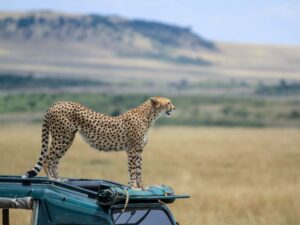
A safari in predator-rich reserves offers a thrilling, unforgettable experience. Lions, leopards, and cheetahs are among the most iconic and awe-inspiring animals on Earth, and seeing them in the wild is something every nature lover should experience. By booking a safari, you’re not only creating lifelong memories but also supporting efforts to protect these magnificent creatures.
Whether you’re watching a lion pride at rest, spotting a leopard in the trees, or witnessing the speed of a cheetah in action, predator-rich reserves offer some of the best opportunities to see these animals in their natural environment. So, take the leap and plan a safari—you’ll be helping to preserve the beauty of the African wilderness, while enjoying an adventure that will stay with you forever.

